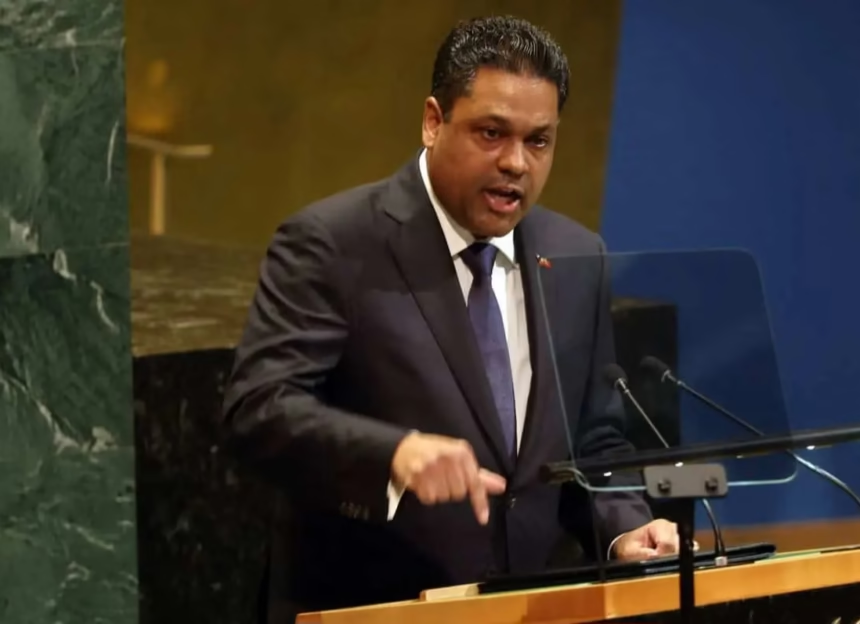Speaking before the 80th session of the United Nations General Assembly, Laurent Saint-Cyr, coordinator of Haiti’s Transitional Presidential Council (CPT), delivered a stark assessment of his country’s worsening crisis and issued an urgent appeal to the international community. In a speech underscored by the gravity of Haiti’s turmoil, he called for swift and coordinated action to restore peace, protect civilians, and create conditions for credible elections.
Saint-Cyr described Haiti as being engulfed in a “domestic war,” with armed gangs confronting unarmed civilians on a daily basis. He paid tribute to Haitian police officers and Kenyan troops who have fallen in the fight against insecurity. “Peace is the most pressing need of our people,” he stressed, adding that the very survival of Haitians depends on immediate measures.
While acknowledging the importance of the Multinational Security Support Mission (MSS), Saint-Cyr said it remains far too limited to stabilize the country. He urged the Security Council to urgently authorize the creation of a Gang Suppression Force (GSF) with a clear mandate and adequate resources to neutralize armed groups, protect civilians, and block the flow of weapons and funds from abroad.
On the political front, he reiterated the CPT’s three priorities: security, elections, and economic recovery. He noted that 85 percent of polling stations had been identified, 70 percent of electoral staff mobilized, and $65 million in national funds earmarked to finance the process. But he warned bluntly: “Without security, no credible election will be possible.”
Saint-Cyr also outlined an economic vision aimed at shifting from humanitarian aid to productive investment, citing plans for two economic development hubs in northern and southern Haiti focused on agro-industry, textiles, renewable energy, and tourism. He emphasized the importance of renewing the U.S. HOPE/HELP trade law to create jobs and reduce migration pressures.
Historical memory featured prominently in his speech. Marking the bicentennial of the indemnity Haiti was forced to pay France for recognition of independence, he called for reparations in a spirit of truth and justice. While acknowledging symbolic gestures made by France, he pressed for a genuine dialogue to deliver historic redress.
The Haitian private sector leader highlighted the crucial role of the diaspora, calling it a cornerstone of national development. He urged that Haitians abroad be treated with respect and dignity, underscoring their indispensable contribution to rebuilding Haiti and enhancing its international standing.
Addressing what he described as “Haitian fatigue” and growing despair, Saint-Cyr pledged to uphold ethical and inclusive leadership. He stressed the need for deep reforms in justice, governance, and anti-corruption efforts. “We will not give in to fatalism,” he said, insisting that the resilience of the Haitian people requires bold, united action.
His appeal to the international community was unequivocal: every minute of inaction translates into lives lost. He warned that silence and delay amount to complicity. Supporting Haiti, he argued, is not only a moral duty but also consistent with the founding ideals of the United Nations — peace, justice, and human rights.
Saint-Cyr emphasized the regional dimension of Haiti’s crisis, noting that insecurity extends beyond its borders and affects the entire Caribbean and hemisphere. He urged neighboring states to stem the flow of arms, ammunition, and illicit financing fueling the violence, declaring that “Haiti has become the front line of a struggle that concerns the whole region.”
Concluding his address, the CPT coordinator said the council’s mission is not limited to managing the immediate crisis but also to rebuilding trust in institutions, organizing credible elections, and laying the foundations for sustainable development. Yet, he warned, none of this can succeed without a firm and immediate commitment from the international community.








